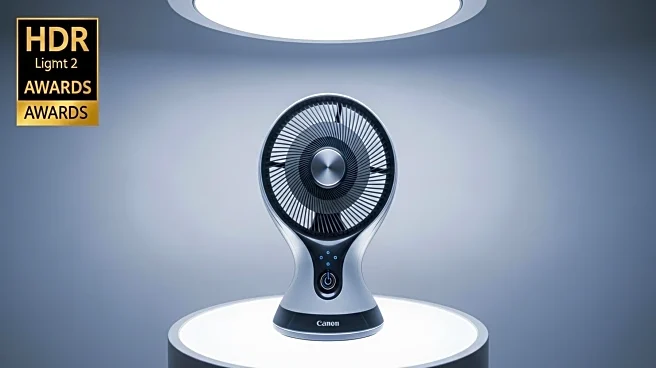What is the story about?
What's Happening?
DREO's TurboPoly Fan 707S has been named one of TIME's Best Inventions of 2025 in the Household category. This fan utilizes Dynamic Wind Motion Technology powered by millimeter-wave radar, allowing it to detect a user's position and adjust airflow accordingly. This innovation marks DREO's second consecutive appearance on TIME's list, following the DREO ChefMaker Combi Fryer in 2024. The TurboPoly Fan 707S represents a significant advancement in smart home technology, transforming traditional fans into intelligent comfort systems that adapt to user movements.
Why It's Important?
The recognition of DREO's TurboPoly Fan 707S underscores the growing importance of smart home innovations in enhancing everyday comfort. By integrating advanced sensing technology into household appliances, DREO is setting a new standard for personalized home environments. This development could lead to broader applications of Dynamic Wind Motion Technology in other air treatment products, potentially revolutionizing the way homes manage climate control. As smart home technology becomes more prevalent, consumers can expect increased convenience, energy efficiency, and sustainability in their living spaces.
What's Next?
DREO plans to expand its Dynamic Wind Motion technology beyond fans, potentially applying it to air conditioners, heaters, and other air treatment products. This could lead to a new era of adaptive comfort systems in homes, where technology intuitively responds to human presence and needs. The success of Shochiku's Demo Day and networking events may encourage more collaborations between startups and major investors like Sony Ventures and SEGA, further boosting the Japanese gaming industry's growth and innovation.
Beyond the Headlines
The integration of millimeter-wave radar into household appliances raises questions about privacy and data security, as these technologies track user movements. As smart home devices become more sophisticated, manufacturers will need to address potential concerns about data collection and usage. Additionally, the widespread adoption of such technologies could influence consumer expectations, driving demand for more personalized and responsive home environments.















